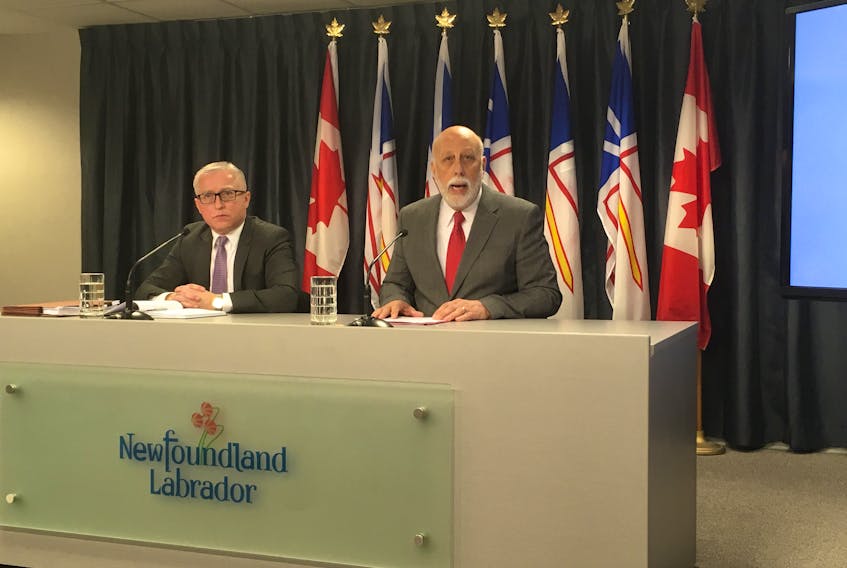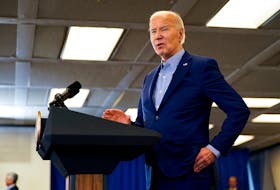Newfoundland and Labrador will add 15 cents to the minimum wage in April, with the provincial government also announcing the wage will be indexed, tied to changes in the cost of living, with automatic adjustments.
The province raised the minimum wage by 25 cents last spring and 25 cents in October 2017, bringing it to $11. It will move up to $11.15 on April 1.
Minimum overtime will go to $16.73 per hour.
Every year, given the newly announced amendments for the labour standards regulations, the province’s minimum wage will be increased based on changes in the national consumer price index. Notice of any increase in minimum wage and minimum overtime will go out within 30 days of the release of the national consumer price index each December.
Wages do not roll back.
The minimum wage will still be subject to regular review every two years, and the government is not restricted from issuing increases, but demands for increases based on inflation are now already served.
“This will ensure a more open, predictable and well-informed approach to increasing the minimum wage,” said Labour Minister Al Hawkins. “It is a transparent formula, that is reflective of the changes to the cost of living.”
All Atlantic provinces now make adjustments to their minimum wage each April 1.
The decision to do so in Newfoundland and Labrador came after public consultations in February and March 2017. Hawkins cited heated debate more recently in Ontario and said the increase announced in this province, with indexing, is a balanced approach serving employers and employees.
Annual changes are being based on the national versus the provincial consumer price index to avoid the larger swings seen in the provincial economy, he said.
Richard Alexander, executive director of the Employers’ Council of Newfoundland and Labrador, told reporters the announcement came with relief.
“We’ve been asking this government and previous administrations to remove the politics from minimum wage setting. For much too long, minimum wage has been a political issue used for political gain,” Alexander said.
Newfoundland and Labrador Federation of Labour president Mary Shortall agreed indexing is a good idea, but said the province could also consider a higher starting point, for the people now earning minimum wage.
Of those workers, roughly 78 per cent are employed in sales and service positions. About 59 per cent are women.
“It’s important as the cost of living rises that wages keep up with it. However, when that wage is too low to begin with, then what you’re doing is you’re locking in an unacceptable hourly wage that’s going to keep workers who are living under the poverty line, under the poverty line,” Shortall said. “This should be the beginning of a discussion of, really, what do we need to have as a minimum wage?”
Speaking to The Telegram, Progressive Conservative Barry Petten said he’s not about to object to an increase in the minimum wage, but he is concerned the announcement will draw attention away from the larger picture.
“I get it, but don’t lose sight of the bigger picture because businesses are struggling and so are individuals, especially low-income earners and minimum wage earners,” Petten said.
- said the government needs to reduce taxes and find ways to improve consumer confidence.
NDP Leader Lorraine Michael said she has been talking about indexing the minimum wage for years, but she was not sold on applying the federal versus provincial consumer price index. She would also like to see more added to the minimum wage up front, to give a higher starting point.
“It’s not adequate. It’s good. It’s a good start,” she said. “(But) the indexing shouldn’t be replacing incremental rises as well.”
There was direct objection from the Canadian Federation of Independent Business (CFIB) to the announced increase.
“Operating a business in the last couple of years has grown increasingly difficult as revenues for many businesses are hard to come by,” Vaughn Hammond, the CFIB’s director of provincial affairs in Newfoundland and Labrador, said in a statement. “Many business owners will have to pass this cost on to the consumer if they can, otherwise, they will reduce staff hours, lay off employees or delay investments.”









